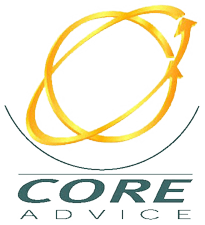Jobs and skills management
Key function, previously limited to administrative staff management alone, human resources management now brings real added value to the strategic management of companies and institutions in emerging countries.
For almost 30 years, the Core Advice team has developed operational skills, through various HR experiences, after contributing to ministries and firm organizational diagnosis:

The Human Resources experiences of the team:
- Human Resources Audit/Social Diagnosis
- Development and implementation of adjustment measures
- Social support for staff redeployments
- Assessment of skills and detection of potentials
- Recruitment
The Human Resources experiences of the team:
- Human Resources Audit/Social Diagnosis
- Development and implementation of adjustment measures
- Social support for staff redeployments
- Assessment of skills and detection of potential
- Recruitment

1. HUMAN RESOURCES AUDIT/SOCIAL DIAGNOSIS
- Development of staff databases when not available
- Analysis of the workforce according to their different distributions
- Analysis of full labour costs
- Analysis of the legal and regulatory framework of HRM
- Identification of social claims and debts
- Analysis of social relations and social climate
- Determination of staffing and employment requirements in relation to CMT’s strategic options (in close cooperation with sector experts)
- Analysis of quantitative and qualitative gaps between needs and staff resources.
- Development and/or implementation of adjustment measures

2. DEVELOPMENT AND IMPLEMENTATION OF ADJUSTMENT MEASURES
- Estimated workforce plans, jobs and skills at 5 years
- Job descriptions and profiles
- 3 years training plans
- Reorganization of the human resources function (structure, profiles, tools, etc.).
3. SOCIAL SUPPORT FOR STAFF REDEPLOYMENTS
- Development and operational management of social plans:
- components « departure management and compensation »
- component “professional reintegration” through the implementation and management of a professional reintegration program designed by our team, the CARIP (Advice and Support to Reintegration and Professional Integration)
- Socio-economic “prospective” and “retrospective” surveys. Led by our team, with ad’hoc tools, within different sectors (education, public works, public companies).
- Prospective surveys: “What do they want to become?”. The results are used to develop concrete reintegration mechanisms based on individual needs and expectations
- Retrospective surveys: “Where are they now ? ». The results allow to identify failure and success factors in the professional reintegration pathways, in order to design a mechanism for return to work based on lessons learned


4. ASSESSMENT OF SKILLS AND DETECTION OF POTENTIALS
Our team piloted these assessments in contexts of measurement of the adequacy of man/position, inventory of skills, internal redeployment, preparation of training plan.
Different tools and supports are used, and an approach based on a methodology that does not focus on “what we are”, but on “what we do”, is preferred.
Our team has also developed, to evaluate skills and detect potentials, in collaboration with a specialist in evaluation and cognitive science, a scientific approach and a powerful computer support contextualized for organizations on the African continent: “ADIM”, in-basket, a tool from “assessment center” methodology.

5. RECRUITMENT
The Core Advice team has successfully recruited senior and middle managers for development projects of parastatal and pan-African organizations. The approach uses a dedicated and fully parameterized pre-selection platform and develops, according to the client, a methodology that uses the most relevant and “tailor-made” tools and approaches to identify knowledge, know-how, and required professional behaviors.

Employment and local economic development
 The Core Advice team has been involved for many years on the African continent and consequently has adopted an attitude of “research and development”, facing unemployment : implementation of targeted approaches on the issues of the employment and professional reintegration (within the framework of the reforms leading to workforce laid-off ) and integration in a first jobs, especially for young people seeking a sustainable source of income.
The Core Advice team has been involved for many years on the African continent and consequently has adopted an attitude of “research and development”, facing unemployment : implementation of targeted approaches on the issues of the employment and professional reintegration (within the framework of the reforms leading to workforce laid-off ) and integration in a first jobs, especially for young people seeking a sustainable source of income.
 Our team draws its involvement in this area from the acute certainty that access to employment and re-employment remains an essential leverage for economic growth, fight against poverty, political stability and social inclusion.
Our team draws its involvement in this area from the acute certainty that access to employment and re-employment remains an essential leverage for economic growth, fight against poverty, political stability and social inclusion.
 At the same time, our team advocates that independent employment (self-employment, micro-enterprise,…) is and remains the answer to the deficit of paid work , but that its corollary must be that of local economies, and that the chances of success require first and foremost that locally-based activity niches are analyzed and identified.
At the same time, our team advocates that independent employment (self-employment, micro-enterprise,…) is and remains the answer to the deficit of paid work , but that its corollary must be that of local economies, and that the chances of success require first and foremost that locally-based activity niches are analyzed and identified.
 Based on his twenty years of experience in the African continent, particularly in terms of professional reintegration, the Core Advice team has designed a “Ready to Act” device of about thirty available tools support whose use and dissemination can now benefit and therefore adapt to the contributions of digital technology and social networks. This system is fundamentally innovative as it deals, in its totality, with the insertion path and the needs of individuals looking for work.
Based on his twenty years of experience in the African continent, particularly in terms of professional reintegration, the Core Advice team has designed a “Ready to Act” device of about thirty available tools support whose use and dissemination can now benefit and therefore adapt to the contributions of digital technology and social networks. This system is fundamentally innovative as it deals, in its totality, with the insertion path and the needs of individuals looking for work.
 Because, especially with regard to the creation of independent jobs, everything stands. Indeed, in the context of the creation of an independent activity, identifying the learning potential, the wishes and the needs of the individual in search of a job in order to help him to acquire skills, do make sense only if this leads to a structured project. Similarly, this project itself has a chance of success only if it fits, as mentioned above, in niches of local activity that must have been analyzed and identified previously.
Because, especially with regard to the creation of independent jobs, everything stands. Indeed, in the context of the creation of an independent activity, identifying the learning potential, the wishes and the needs of the individual in search of a job in order to help him to acquire skills, do make sense only if this leads to a structured project. Similarly, this project itself has a chance of success only if it fits, as mentioned above, in niches of local activity that must have been analyzed and identified previously.
 The road map drawn up with the project leader, who defines the project and organizes the necessary skills inputs for the beneficiary, (i) requires that local partners and service providers have been previously identified to avoid duplication of efforts and (ii) it only leads to an activity if we accompany the small business entrepreneur in his search for micro-financing, with actors that must have been, upstream, mobilized and organized. Finally, once the activity is launched, its durability is largely dependent on the existence of support and coaching.
The road map drawn up with the project leader, who defines the project and organizes the necessary skills inputs for the beneficiary, (i) requires that local partners and service providers have been previously identified to avoid duplication of efforts and (ii) it only leads to an activity if we accompany the small business entrepreneur in his search for micro-financing, with actors that must have been, upstream, mobilized and organized. Finally, once the activity is launched, its durability is largely dependent on the existence of support and coaching.
The device we have designed treats several thousand beneficiaries by providing 24 months of support to everyone, from 3/6 months before the creation of the activity to 6/18 months after the creation.

Institutional communication
« The human leadership of economic reforms »

« Privatization, economic and social challenge »
« The Public Service, a powerful tool at the service of the Nation »

« The human leadership of economic reforms »
« Privatization, economic and social challenge »
« The Public Service, a powerful tool at the service of the Nation »
Since 1992, we have designed and run institutional communication programs and operations
intended, according to objectives, to various targets:
- Governments
- Parliamentarians
- Staff representatives,
- Employees,
- Civil society
- Bi and multi-lateral financing organizations
structured, according to the missions and the targets, around different means and tools
- Awareness sessions, lasting 2 days, for employees and business unions from firms concerned by the privatization/restructuring programs
- workshops grouping members of the Government around the theme «Social Driving of Economic Reforms »
- information days « Privatization, economic and social challenge » organized for the attention of Parliamentarians (Deputies, Senators)
- information tours of all provinces or regions in different countries (1-2 days per province/region)
- workshop (« the Public Service, a powerful tool at the service of the Nation ») conceived and animated at the request of the World Bank
- brochures designed and disseminated to enhance the transparency and credibility of information to those affected by public firms restructuring
- training and coaching sessions on the social support of privatizations
- writing and dissemination of advocacy for technical and financial partners of projects

